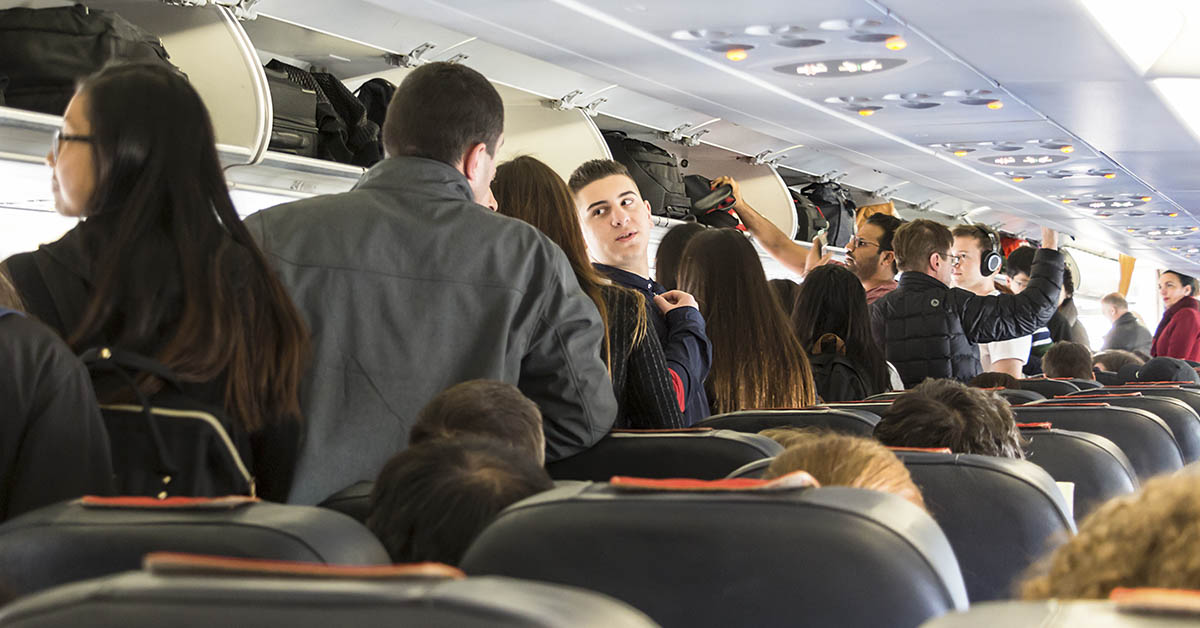
Airline Fines Passengers for In-Flight Habit

Turkey Cracks Down on Premature Standing on Airplanes with New Fines
Turkey has implemented a new regulation aimed at curbing a common, yet potentially dangerous, habit among air travelers: standing up before the plane has come to a complete stop. The new policy introduces fines for passengers who stand, unbuckle their seatbelts, or open overhead bins before the aircraft has reached its designated gate. This initiative seeks to enhance safety, prevent injuries, and promote more orderly disembarkation procedures.
Further reading: Living Room Upgrade: Smart Tech Left Behind
The penalty for violating this rule is currently set at 2,603 Turkish lira, which is approximately 70 US dollars. Turkish authorities have emphasized that this measure is not intended to generate revenue, but rather to reinforce responsible behavior and minimize incidents caused by premature movement within the cabin.
The Safety Imperative Behind the Policy
The primary motivation behind the new regulation is to mitigate safety risks associated with passengers standing before the plane stops entirely. During taxiing, the aircraft can experience abrupt turns or sudden halts, which can lead to falls and collisions with service carts or other passengers. Opening overhead bins prematurely also poses a risk, as luggage can fall and cause injuries.
Cabin crew members have reported an increase in incidents related to early movement, highlighting the need for stricter enforcement of safety protocols. By remaining seated with seatbelts fastened until the aircraft is parked, passengers not only protect themselves but also contribute to the safety of others on board.
Enforcement and Implementation
Under the new rules, cabin crew members are authorized to report violations directly to the Turkish Directorate General of Civil Aviation. Airlines are now required to document instances where passengers disregard safety instructions after landing. Passengers found standing, removing luggage, or ignoring seatbelt signs before the aircraft reaches its gate may be subject to administrative fines.
While the enforcement mechanisms are still being refined, the establishment of a formal rule provides flight crews with greater authority to address non-compliance. The deterrent effect of a monetary penalty is expected to reduce arguments and foster improved cooperation among passengers.
Aligning with Industry Practices and Global Standards
Although most airlines already advise passengers to remain seated until the seatbelt sign is switched off, many travelers often disregard this instruction. The Turkish regulation transforms these guidelines into an enforceable policy. While fines for standing before a plane stops are not widely implemented globally, other countries may consider similar measures in the future.
International aviation organizations typically rely on in-flight briefings and verbal reminders to maintain order. However, some safety experts believe that stricter enforcement is necessary to improve passenger behavior. Turkey’s approach aligns airline procedures with national law, making safety compliance a more formalized and less optional aspect of air travel.
Industry and Passenger Reactions
Airlines have generally welcomed the new regulation. Turkish Airlines and other carriers in the region have incorporated reminders into their landing announcements, informing passengers about the potential consequences of standing early. Flight attendants have also expressed feeling more empowered to manage non-compliant travelers, knowing that they have legal backing.
The aviation industry, under increasing pressure to enhance safety and efficiency, particularly during peak travel periods, anticipates that the fines will help streamline the disembarkation process. Pilots and aviation unions have also voiced their support, viewing the regulation as a reasonable deterrent to dangerous behavior.
Passenger reactions have been varied. Some passengers support the measure, believing that fines may finally discourage the chaotic rush to stand and retrieve bags as soon as the plane lands. Others consider the rule overly strict and argue that it penalizes a common behavior seen in airports worldwide.
Travelers unfamiliar with the regulation may be caught off guard, particularly tourists or first-time visitors to Turkey. To mitigate potential confusion, Turkish officials plan to implement education campaigns and clear signage to ensure passengers are aware of the rule.
A Broader Trend Towards Enhanced Passenger Discipline
Turkey’s new regulation is part of a broader global trend towards stricter enforcement of passenger conduct in air travel. Airlines worldwide are grappling with a rise in disruptive incidents, prompting regulators to take action. While this specific policy addresses the issue of standing before a plane stops, it aligns with larger efforts to manage in-flight behavior and ensure passenger safety.
The post-landing phase is often overlooked in discussions of air travel safety, yet it is a critical period for preventing injuries and confusion. By focusing on this aspect of the journey, Turkey aims to establish a new standard for orderliness and potentially influence international travel guidelines.
The Potential for Global Adoption
While Turkey is currently the only country imposing fines specifically for standing before a plane stops, the global aviation community is closely monitoring the policy’s effectiveness. If the regulation proves successful in reducing in-cabin incidents and improving safety compliance, other nations may consider implementing similar measures.
Airlines in the United States, Canada, and Europe already face challenges with unruly passengers, particularly during delays or extended taxiing periods. If fines prove to be an effective deterrent, this approach could become a standard practice in air travel. Aviation analysts suggest that rule enforcement, rather than voluntary compliance, may represent the future of post-landing safety.
Challenges in Education and Enforcement
The introduction of a fine is only one aspect of the solution. Ensuring that passengers understand the policy is equally crucial. Airlines are now required to inform passengers about the rule as part of their in-flight safety announcements. However, language barriers and cultural differences may still lead to confusion.
Tourists visiting Turkey might not be aware of the rule unless it is clearly displayed on boarding passes, overhead monitors, or entry gates. The success of the regulation hinges on consistent enforcement and thorough passenger communication. Authorities are collaborating with airline staff to ensure that travelers receive multiple warnings before any action is taken.
Impact on the Passenger Experience
While some may perceive the rule as an inconvenience, the policy could potentially enhance the overall passenger experience. Fining individuals for standing before a plane stops encourages more disciplined and predictable behavior. Fewer people rushing into the aisle can lead to a calmer and safer disembarkation process.
It can also prevent aggressive behavior, such as pushing past others to retrieve overhead bags. For elderly travelers, families with children, or individuals with mobility issues, this change may provide a much-needed sense of order. If passengers begin to adhere to the rules more consistently, flying could become a less stressful experience for everyone on board.
Conclusion: A Step Towards Safer Air Travel
Turkey’s decision to fine travelers for standing before a plane stops sends a clear message about the importance of prioritizing safety and order in air travel. What was once considered a minor annoyance is now formally recognized as a risk that needs to be addressed. With structured fines, official announcements, and support from airline staff, the new rule lays the groundwork for a safer and more organized disembarkation process. As other countries observe the results, Turkey’s regulation may pave the way for similar policies elsewhere. For now, passengers flying into or out of Turkey should remain seated until instructed otherwise, or risk facing a financial penalty for non-compliance.






